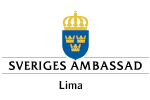 By: Ronald U. Mendoza
By: Ronald U. Mendoza
Philippine Daily Inquirer | Monday, August 13th, 2012
Promoting inclusive growth is the cornerstone of P-Noy’s development plan. Here’s a simple way to summarize the over-all effort. The “growth” part of the strategy is linked to the effort to boost infrastructure, improve economic competitiveness and drum-up private sector investments (e.g., PPPs or Public-Private Partnerships). On the other hand, the “inclusiveness” part is linked to the effort to strengthen the country’s social protection system (e.g., the 4Ps or Pantawid Pamilyang Pilipino Program and PhilHealth), as well as ensure that the investments and economic activities are not just concentrated in urban areas (and in particular, Luzon and Manila) and involve industries where the bulk of the population could engage (e.g., agriculture and tourism). As noted by Secretary Arsi Balisacan of NEDA, PPPs need to be leveraged in the countryside to meet the infrastructure gaps there, too. Anticorruption efforts then underpin both the “growth” and “inclusiveness” strategies by helping to ensure that the public gets the most “bang for its buck” on both these fronts.
Less ballyhooed, an important additional ingredient—the full roll-out of the Residential Free Patent Act—could also help promote inclusive growth. Republic Act 10023 (an Act Authorizing the Issuance of Free Patents to Residential Lands) aims to simplify and speed-up the titling of unregistered residential lands in the Philippines. You may have already read in the papers that no less than the Vice President and Housing and Urban Development Coordinating Council (HUDCC) Chair Jojo Binay is among those spearheading this effort. By facilitating the issuance of free patents on residential lands to qualified claimants, they no longer need to go through the protracted and costly process to gain legal rights to their properties.
To read the complete aricle, please visit the Philippine Inquirer


